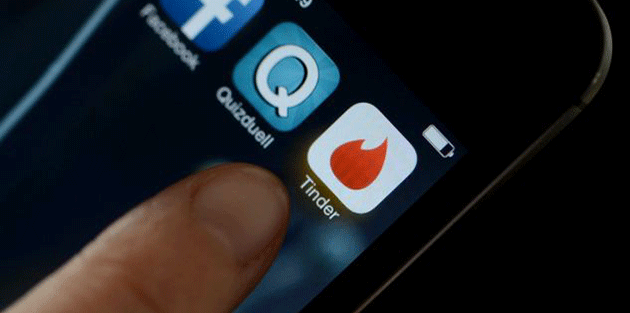Everything I Know About Economics I Learned from Tinder by Joseph S. Diedrich
The Huffington Post calls it “the Twitter of dating.” It’s Tinder, an 18-month-old mobile app now available in two dozen languages. Millions of men and women, mostly millennials, have flocked to the Tinderverse. It’s exhilarating, enticing, and occasionally disturbing.
To begin, you download the app and log in via Facebook. Tinder hijacks essential data—name, age, photos, mutual friends, and likes—from Zuck’s house and builds you an editable profile. Then you go window shopping—not for shoes, but for other users in your area. Swipe right if you like what you see and left if you don’t. When two people swipe right for each other, they’re “matched,” and a chat conversation opens.
You may have already known all that, perhaps from personal experience. What you probably didn’t know is that Tinder is also an economics textbook. Besides getting you laid, the app teaches you the fundamentals of the “youngest of all sciences.”
Human action
For Ludwig von Mises, economics starts with a foundational understanding of human action. He defines human action as “purposeful behavior” precipitated by perceived “uneasiness” and “the expectation that purposeful behavior has the power to remove or at least to alleviate the felt uneasiness.”
That’s precisely why I downloaded Tinder. Some of my needs, wants, and desires were not being met. I was not perfectly content. By engaging in the purposeful act of using the app, I expected that I would come closer to contentment. Whether or not that happened is none of your business.
Subjective value
The cornerstone of Austrian economic thought (to which Mises adhered) is the subjective theory of value. When Mises writes, echoing his forebear Carl Menger, “value is not intrinsic, it is not in things,” he underscores the basic premise of Tinder. The choice is mine to make to swipe right. While the app can find people for me based on my location and input parameters (age, gender, etc.), it cannot (and could never) quantify or calculate my valuation of the beauty of another.
My valuations neither impede nor enhance another man’s abilities to make his own subjective valuations. Nobody can be declared “objectively attractive” prior to or because of a swipe. I doubt, for instance, that many people swipe right for anarchy tattoos, but I do. Indiscriminately.
Law of returns
Originally articulated in 1815 by the classical economist David Ricardo, the law of diminishing marginal returns states that “as more and more resources are combined in production with a fixed resource—for example, as more labor and machinery are used on a fixed amount of land—the additions to output will diminish.”
More generally, the per-unit (marginal) benefit gained from something diminishes with every further addition of that thing.
When I first started Tindering, I vetted every individual with a critical eye. I swiped deliberately and meticulously. After awhile, however, each additional profile seemed less and less significant. I began to scrutinize with less intensity. My thumbs got faster. Likewise, I remember my first Tinder match vividly: It increased my match total from zero to one. But now, a new match raises the proverbial boat nary an inch on my Tinder sea.
The role of advertising
Economists have sparred over the role and value of advertising. Prominent figures such as John Kenneth Galbraith believed that advertising is a scourge on society. Firms use advertising to create artificial demand for their own products, thereby distracting the gullible public and siphoning wealth from more productive uses. Galbraith’s contemporary F. A. Hayek saw it differently:
It is because each individual producer thinks that the consumers can be persuaded to like his products that he endeavors to influence them. But though this effort is part of the influences which shape consumers’ taste, no producer can in any real sense ‘determine’ them.
Information shared by Tinder “producers” is more or less advertising. For that, I am grateful. It helps me make decisions as a “consumer.” As Mises says, “The consumer is not omniscient.” Oh, you like gin? Please, tell me more. Your profile picture includes multiple cats? Swipe left. I much prefer the market of Tinder to blind-date socialism and arranged-marriage communism.
Assurance contract
An assurance contract is a mechanism through which one party agrees to provide a collective good if and only if other parties first provide resources that reach a threshold when aggregated. The idea first appeared in The Review of Economic Studies in 1989. Authors Mark Bagnoli and Barton L. Lipman explain: “Agents voluntarily contribute any non-negative amount of the private good they choose and the social decision is to provide the public good if contributions are sufficient to pay for it.”
When I swipe right on Tinder, I pledge my contact information (my Tinder “address,” if you will). The app takes note of my pledge and holds it in escrow. Upon reaching a threshold (viz., two reciprocal right swipes), Tinder provides the threshold good (a chat conversation). Neither my match nor I are obligated to actually chat, however. The contract only assured us that the feature would be made available, not that it had to be used.
On the whole, Tinder is a vast marketplace of individuals making choices. That’s the economy in a nutshell. Use the app to shop around, find a date, or fall in love . . . with economics.
ABOUT JOSEPH S. DIEDRICH
Joseph S. Diedrich is a Young Voices Advocate and a law student at the University of Wisconsin. He also works with multiple Internet startups, including Liberty.me.


